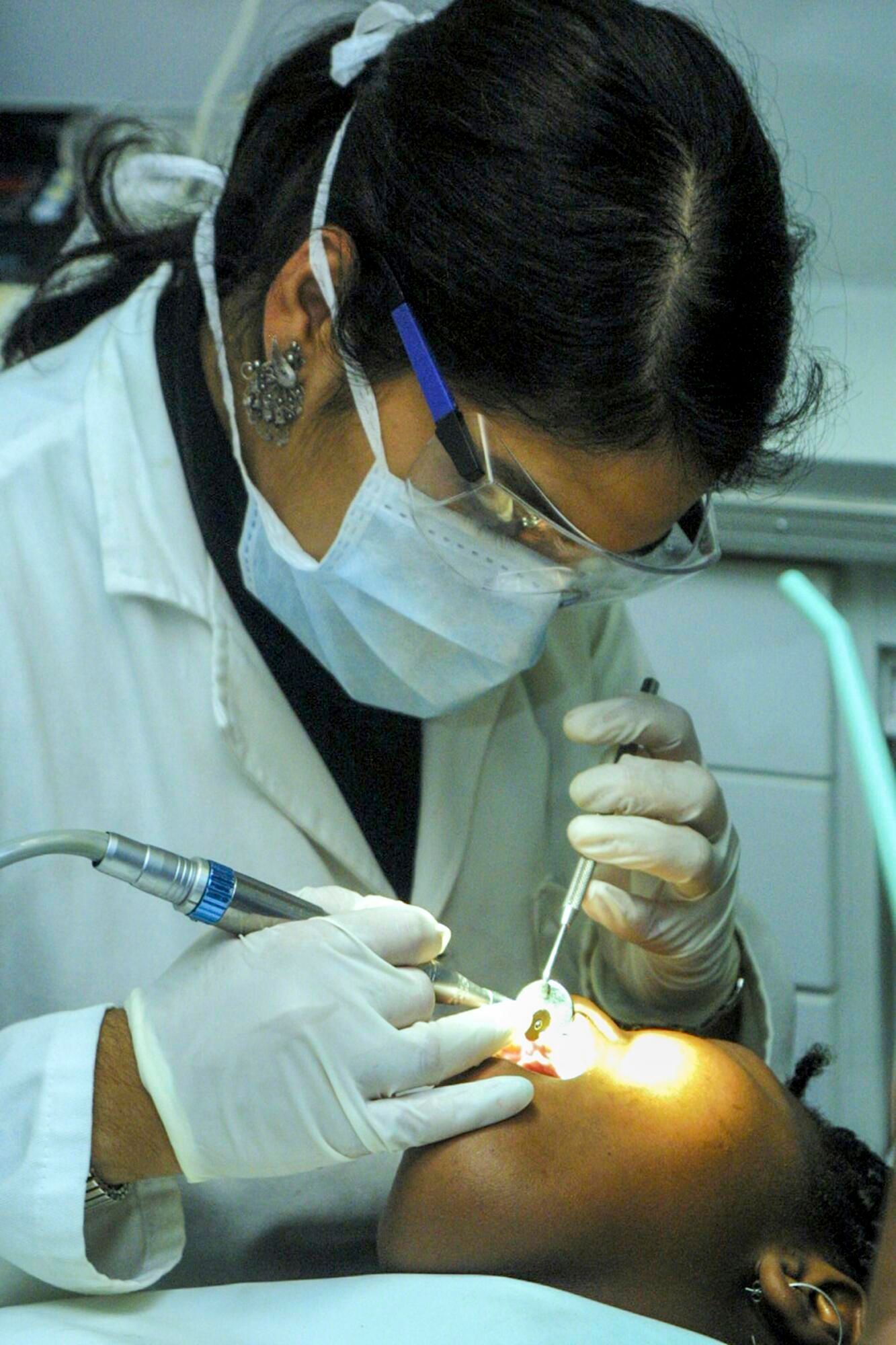A full mouth reconstruction is a comprehensive dental treatment that restores both the function and appearance of your teeth. It addresses multiple dental issues at once to create a stable foundation for continuing dental health.
The U.S. dental implant market was valued at about $1.5 billion in 2023 and is projected to grow at a compound annual rate (CAGR) of 10.4% through 2030. This growth is driven by strong resource availability, higher per capita income, an increasing focus on aesthetics, and greater patient awareness (Grand View Research).
This comprehensive dental solution goes beyond cosmetic enhancements; it's a holistic approach to restoring your smile. Unlike single treatments that address isolated problems, it's a tailored solution for people who need lasting, full-spectrum dental care.
Let's explore what it involves, who it's for, and how it supports both cosmetic and medical needs.
What Is a Full Mouth Reconstruction?
Full mouth reconstruction refers to a customized treatment plan that rebuilds or replaces all teeth in the upper and lower jaws. It combines multiple procedures, such as crowns, bridges, veneers, dental implants, and orthodontics, to restore full function and aesthetics. It addresses serious issues such as the following:
- Severe tooth wear from grinding or acid erosion
- Multiple missing teeth
- Advanced gum disease
- Jaw misalignment or bite problems
- Worn or outdated dental work, or damage from trauma
This approach falls under comprehensive dental care. It blends restorative, cosmetic, and sometimes surgical treatments to rebuild the entire mouth.
Is Full Mouth Reconstruction Right for You?
You may be a candidate for a full mouth reconstruction if you struggle with multiple dental issues. This may include:
- Chronic jaw pain or headaches that are linked to bite misalignment, TMJ dysfunction, or uneven tooth wear.
- Difficulty speaking or chewing due to missing or damaged teeth.
- Widespread cavities or gum deterioration that resulted in bone loss, gum recession, or loose teeth.
- Broken, worn, or failing restorations like old crowns, bridges, or fillings that no longer fit or protect the underlying tooth structure.
- Conditions such as amelogenesis imperfecta or a cleft palate that affected tooth development and alignment.
Patients may seek oral health treatment after years of dental problems or after experiencing an injury, undergoing cancer treatment, or contracting an illness. A thorough evaluation by a dentist will determine if full reconstruction is the appropriate course of action for you.
Not every patient is immediately ready for full mouth reconstruction. Several factors can influence treatment planning and outcomes, such as:
- Chronic illnesses
- Bone density
- Smoking habits
- Oral hygiene
Your dentist will work with you to address these as needed, before starting any reconstruction treatment.
Dental Reconstruction Benefits
The benefits go far beyond cosmetics. Here's what patients can expect to gain:
Long-Term Oral Health
Addressing underlying dental issues helps prevent future problems. Treating conditions such as gum disease or tooth decay reduces the risk of further dental complications and improves overall oral health.
Oral health is closely connected to overall physical health. Misaligned or missing teeth can make chewing challenging, which may lead to digestive issues or poor nutrition. Correcting chronic oral infections also lowers the risk of inflammation-related conditions, such as:
- Complications from diabetes
- Heart disease
In addition, it can improve sleep quality, further contributing to wellness.
Better Oral Function
Regaining the function of your teeth and gums can make eating and communication more comfortable. This improvement can enhance your day-to-day activities and overall well-being.
Aesthetic Transformation
Cosmetic dental transformation procedures like veneers and crowns can address issues such as the following:
- Discoloration
- Misalignment
- Gaps
These treatments help create a natural-looking smile that complements your facial features.
Boosted Self-Confidence
Living with chronic dental problems can affect more than your physical health; it can also put strain on your emotional well-being. A restored smile can profoundly impact an individual's self-esteem, helping patients re-engage with their:
- Careers
- Relationships
- Daily life
Long-Term Durability
Full mouth reconstruction relies on durable materials designed to last for decades. Titanium implants, zirconia crowns, and porcelain-fused-to-metal restorations are chosen for their:
- Strength
- Biocompatibility
- Natural appearance
Personalized Treatment Plan
Each individual's dental needs are unique. A full mouth reconstruction involves a customized plan that combines various procedures to address your specific needs, concerns, and goals.
When creating a plan, your dentist will carefully consider your bite, bone structure, gum health, and facial symmetry to achieve the best results.
The Treatment Process
The journey of full mouth reconstruction typically involves several stages. This includes the following:
Initial Consultation
The process begins with a thorough evaluation by a dental professional. This evaluation may include:
- Digital X-rays
- 3D imaging
- Intraoral scans
A full-mouth clinical examination is also performed to assess the condition of your:
- Teeth
- Gums
- Jaw joints
- Bone structure
Your provider reviews your medical history, asks about any symptoms or concerns, and evaluates how bite alignment, tooth wear, and gum health affect your function and comfort. They may assess your airway, jaw movement, and muscle function to identify possible issues that could affect bite or long-term stability.
Visual records, including photographs and diagnostic models, are often created to plan your treatment and show potential outcomes.
Treatment Planning
Based on the evaluation, a personalized treatment plan is developed. This plan outlines the necessary procedures, timeline, and expected outcomes.
Your provider will also discuss anesthesia options and how each phase supports long-term appearance and oral health. This collaborative planning process ensures that every step is aligned with your comfort, lifestyle, and goals.
Implementation
Treatment is carried out in phases, depending on the complexity of the procedures. This may involve multiple appointments to complete the various stages.
Depending on the procedures, pain management and a soft-food diet may be recommended during the early stages of healing.
Follow-Up Care
Your dental team schedules follow-up appointments after the procedures. They monitor healing, address concerns, and ensure the reconstruction's success.
Choosing the Right Provider
Not all dentists offer full mouth reconstruction. Look for a provider with experience in comprehensive holistic dental solutions, advanced restorative techniques, and a collaborative approach. Important things to check or ask about include:
- Credentials, training, and ongoing learning in restorative and cosmetic dentistry
- Technology used (digital imaging, CAD/CAM)
- Case examples or before-and-after photos
- Coordination with other specialists
- Patient reviews and testimonials
A skilled provider guides you through every step. They will explain the risks and benefits, answer all your questions, and design a plan that exclusively addresses your specific challenges.
Frequently Asked Questions
How Long Does Full Mouth Reconstruction Take?
The treatment timeline differs depending on the complexity of your case. Most full mouth reconstructions take several months to complete. Procedures involving dental implants or orthodontics can extend treatment to over a year.
Your dentist will outline a phased plan with estimated durations for each step.
Is the Procedure Painful?
While some procedures may cause temporary discomfort, modern dentistry offers minimally invasive techniques. There are several sedation options to keep patients comfortable.
Over-the-counter medication and following aftercare instructions will help you control post-procedure soreness.
Does Insurance Cover Full Mouth Reconstructions?
Insurance may cover some components if your dentist determines them to be medically necessary. This may include treatment for:
- Gum disease
- Extractions
- Restorations
Cosmetic elements, such as veneers, are typically not covered by insurance. Always check with your provider and request a pre-treatment estimate.
How Do I Care for My New Smile?
Maintaining your reconstruction requires more than standard brushing and flossing. Dental implants, crowns, and bridges need special attention and even lifestyle changes to prevent:
- Plaque buildup
- Gum inflammation
- Wear on the restorations
Routine dental check-ups every six months help your dentist track the integrity of your restorations. It also enables them to make minor adjustments and catch potential issues early.
Can Full Mouth Reconstruction Fix TMJ Disorders?
Yes. This can help if misalignment or missing teeth cause your jaw pain or TMJ disorder. Rebuilding your bite with properly aligned restorations may alleviate pressure on the jaw joint and control symptoms like headaches and clicking.
How Does Full Reconstruction Differ From a Smile Makeover?
A smile makeover is elective and focused on aesthetics, such as:
- Veneers
- Whitening
- Minor corrections
Full mouth reconstruction, on the other hand, is medically necessary and addresses functional issues like:
- Tooth loss
- Bite irregularities
It often includes cosmetic improvements, but its primary goal is restoring health and function.
What Are the Risks of Full Mouth Reconstruction?
Like any medical procedure, full mouth reconstruction carries risks. These may include:
- Infection
- Implant failure
- Bite adjustment issues
- Complications from anesthesia
A qualified provider will discuss the procedural risks in detail with you and take steps to minimize them.
Full Mouth Reconstruction: A Long-Term Health Investment
A full mouth reconstruction is not just cosmetic. It is a comprehensive, planned approach that restores oral health, function, and appearance. By treating several issues at once, it provides a comprehensive solution that supports long-term well-being.
Transform your smile with the compassion and precision that define TERSA Oral and Facial Surgery. Led by Dr. Guerra, an oral and maxillofacial surgeon with 12+ years of experience and advanced training in anesthesiology and facial aesthetics, our team delivers outstanding results. With our state-of-the-art technology, you will notice the difference in care that is tailored to your specific needs.




